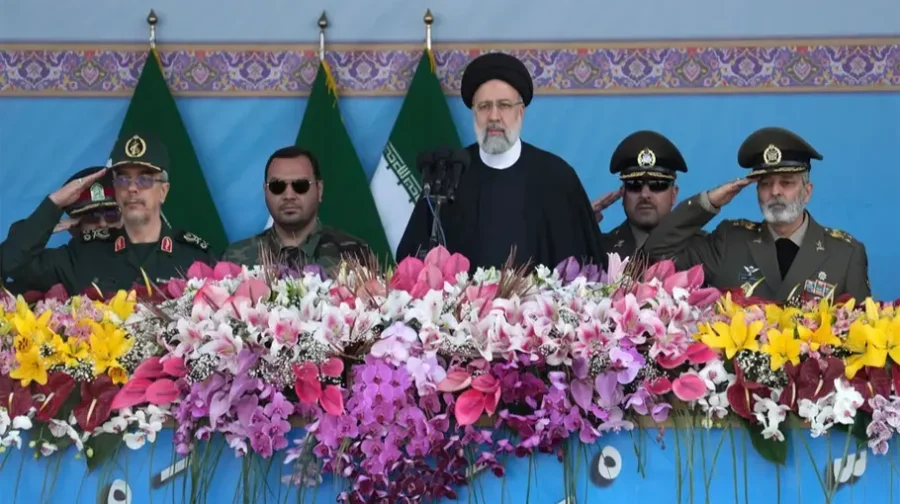Iran’s president Tuesday reiterated threats against Israel while marking the country’s annual Army Day, though he stayed away from criticizing Saudi Arabia as Tehran seeks a détente with the kingdom.
The comments by Ebrahim Raisi came as fighter jets and helicopters flew overhead in Tehran, and as Iranian sub-marines sailed across its waters during a ceremony carried live by state television.
The day celebrates Iran’s regular military, not its paramilitary Revolutionary Guard, whose expeditionary forces operate across the wider Mideast and aid Iranian-allied militia groups like Lebanon’s Hezbollah. The Guard also routinely has tense encounters with the U.S. Navy. Speaking at the ceremony, Raisi threatened Israel, which is suspected of carrying out a series of attacks targeting Iran since the collapse of its nuclear deal with world powers.
“Enemies, particularly the Zionist regime, has receive the message that any tiny action against (our) country will prompt a harsh answer from the armed forces, which will accompany the destruction of Haifa and Tel Aviv,” Raisi said.
Raisi also reiterated a demand for the U.S. to leave the Mideast. American policy since the Carter administration has viewed protected the Persian Gulf region as crucial to securing global energy supplies. A fifth of the world’s supply of oil passes through the Strait of Hormuz, the narrow mouth of the Persian Gulf.
While not specifically naming Saudi Arabia, Raisi did offer an olive branch in his remarks.
“The hand of our armed forces warmly shakes the hand of the regional nations that intend to create security in the region,” the president said.
In March, Iran and Saudi Arabia agreed to reestablish diplomatic relations and reopen embassies after seven years of tensions, a diplomatic agreement reached in China. In the time since, Saudi Arabia also has been involved in a prisoner swap with Yemen’s Iranian-backed Houthi rebels, with hopes such a deal could see an end to that country’s yearslong proxy war.—AFP










